Please Don’t Ride the Elephants
You know how when you go to a zoo (or maybe to a park with lots of wildlife), they have those “Please don't feed the animals” signs up all over the place?
Well, today I have a very similar plea:
Please don't ride the elephants.

Not long ago, when I first started thinking about my travel bucket list, “riding an elephant in the jungle” was something I dreamt of someday doing — right up there with riding a camel in the desert and a horse on a beach.
But then I started learning snippets of the truth about elephant tourism, and I quickly struck that item off my list.
In Southeast Asia, elephant tourism is a booming business. You'll see baby elephants making paintings for paying tourists, young elephants performing on the streets, and endless ads for elephant trekking camps that allow you to ride that elephant in the jungle.
But, knowing what I know now about the plight of elephants in Asia, I would advise you to avoid ALL of these things.
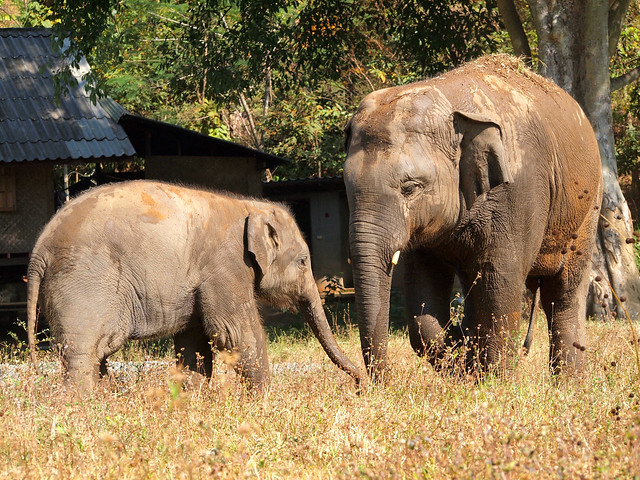
“Training” elephants
Elephants are very intelligent animals, and are definitely capable of being trained. Unfortunately, the “training” that happens in Thailand (and many other places in Asia) has nothing to do with positive reinforcement and everything to do with torture and fear.
At a very young age, elephants are captured in the wild and put through a phajaan ceremony. It's very misleading to call this a “ceremony,” however, because it's more like torture. The Phajaan is also often known as “the crush” because it involves tying the young elephants up in a very small cage so that they can't move — crushing their bodies. Then they are beaten, poked, sleep-deprived, and starved for up to a week — crushing their spirits. (You can see videos of this, though they are very disturbing to watch.)
Many of them die.
Those that survive the phajaan emerge broken in every sense of the word — and now fear humans enough to listen to any command they are given.
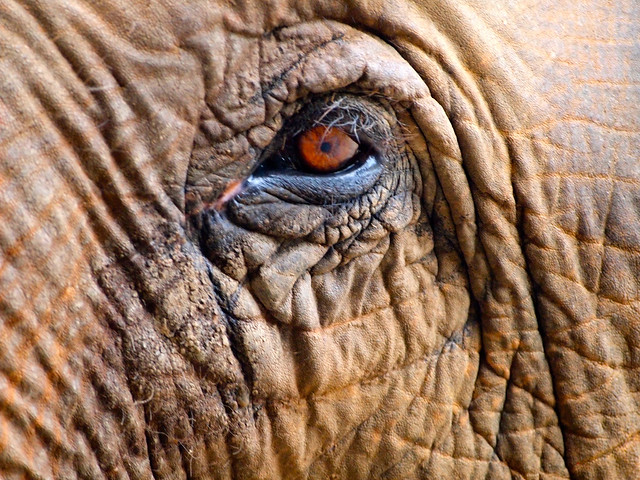
These elephants go on to be the ones you see in circuses, or painting those pictures, or in those trekking camps in the jungle. In these “jobs,” the elephants are often chained up, prodded with bullhooks, and sometimes even shot with slingshots. Other “trained” elephants go into the illegal logging trade, which is perhaps the worst fate for an elephant; many die young from broken backs and other injuries.
Aren't Asian elephants endangered?
One hundred years ago, there were hundreds of thousands of wild elephants in Asia. Today? That number is just in the thousands. Deforestation and other development has claimed the elephants' natural habitat over the last 100 years, leading to Asian elephants being considered an endangered species.
So why are people able to enslave them?
It's a funny thing, the relationship Asia has with elephants. In the Hindu and Buddhist religions, elephants are sacred. But the animals have also been used for centuries as work animals, and are now integral to the tourism industry.
And, once an elephant goes through the phajaan ceremony in Thailand, it is then considered nothing more than domestic livestock; it is no longer a wild elephant that can be protected.

In recent years, the elephant-powered logging industry has been banned in Thailand. But many mahouts simply take their elephants over the border into Burma, or just continue logging illegally in Thailand. They need to make a living, too, they argue.
And elephant tourism in Thailand has only increased. Everyone, after all, wants to ride an elephant in the jungle.
Getting to know elephants
During my recent trip to Thailand, I spent time at an elephant sanctuary called Elephant Nature Park. It is run by a woman named Sangduen “Lek” Chailert, who may be one of the most inspirational people I have ever met.
Lek lives her life for the elephants. She has been disowned by her family, blacklisted by the Thailand Tourism Authority (because she shows people videos of the phajaan), and has even had threats made on her life. But still she has persisted in her mission to rescue abused elephants and give them a safe place to live out the rest of their lives.
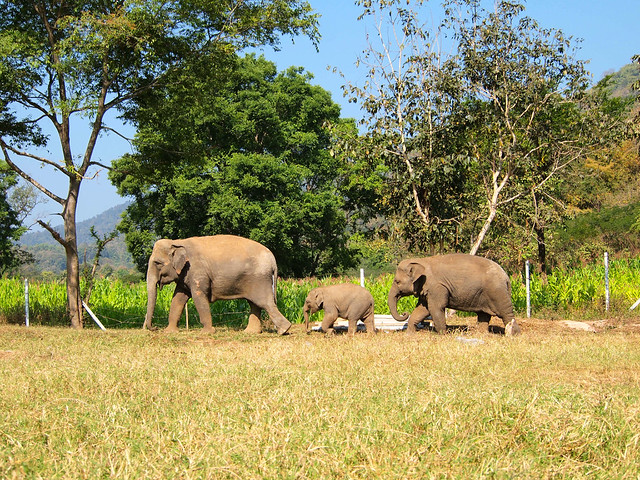
ENP has a growing herd of elephants — the number currently stands at more than 40 — that have all been rescued from depressing situations. Many came to the park with broken bones, infections, landmine injuries, or blind eyes. And all arrived with broken spirits.
RELATED: Get to Know Elephant Nature Park
Lek treats these elephants like her children. She sleeps outdoors with them if they are anxious; she sings them lullabies to soothe them to sleep; she strokes their trunks and scratches their ears and looks at them with nothing but love in her gaze.
And the elephants respond to it.
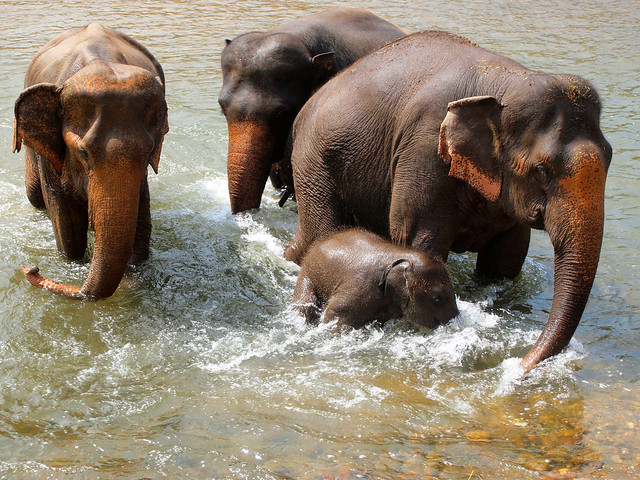
Despite what they have been through, the elephants at ENP have adapted to life at the sanctuary. They have formed family groups; some have even conceived and given birth to adorable (and mischievous) baby elephants. They play in the mud and roll around in the river. They mourn friends and adopted family members when they pass away.
If I learned anything at Elephant Nature Park, it's that these creatures are much more than “just animals.”
They are emotional. They are smart. They are full of personality.
And they are not animals that should be used for any tourist's amusements.
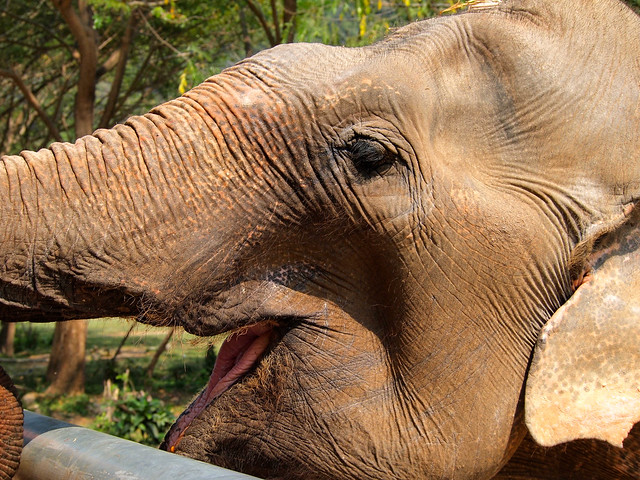
Please don't ride the elephants
I'm not dedicating this whole post to Elephant Nature Park, though (I'll save that for next week — stay tuned!). Instead, I'm dedicating it to the elephants.
People who have gone to Thailand and ridden elephants aren't evil; they aren't bad people.
But, more likely than not, they were uneducated. Uneducated about how these elephants are trained, and uneducated about the fact that an elephant's back — big as it is — is not actually strong enough to carry heavy loads. It's why many of the elephants at ENP have suffered broken hips and legs and even backs back during their logging and trekking days.
Yes, ENP rescues elephants from sad situations when it can. But the organization's larger goal is to turn the uneducated into the educated.
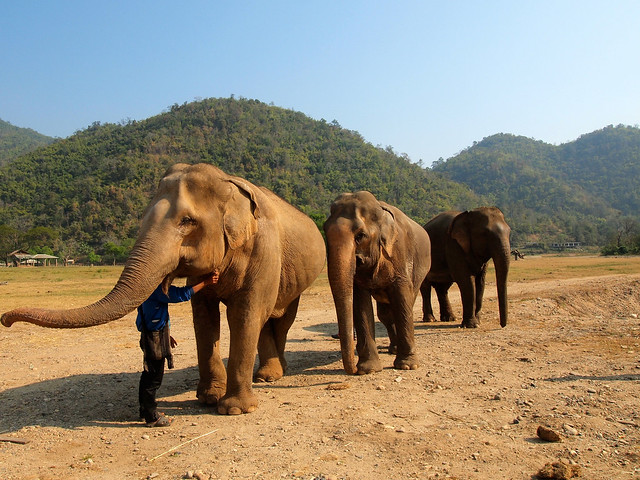
Because, the more educated we are, the better decisions we will be able to make when we travel.
So I'm begging you.
Please.
Don't ride the elephants.
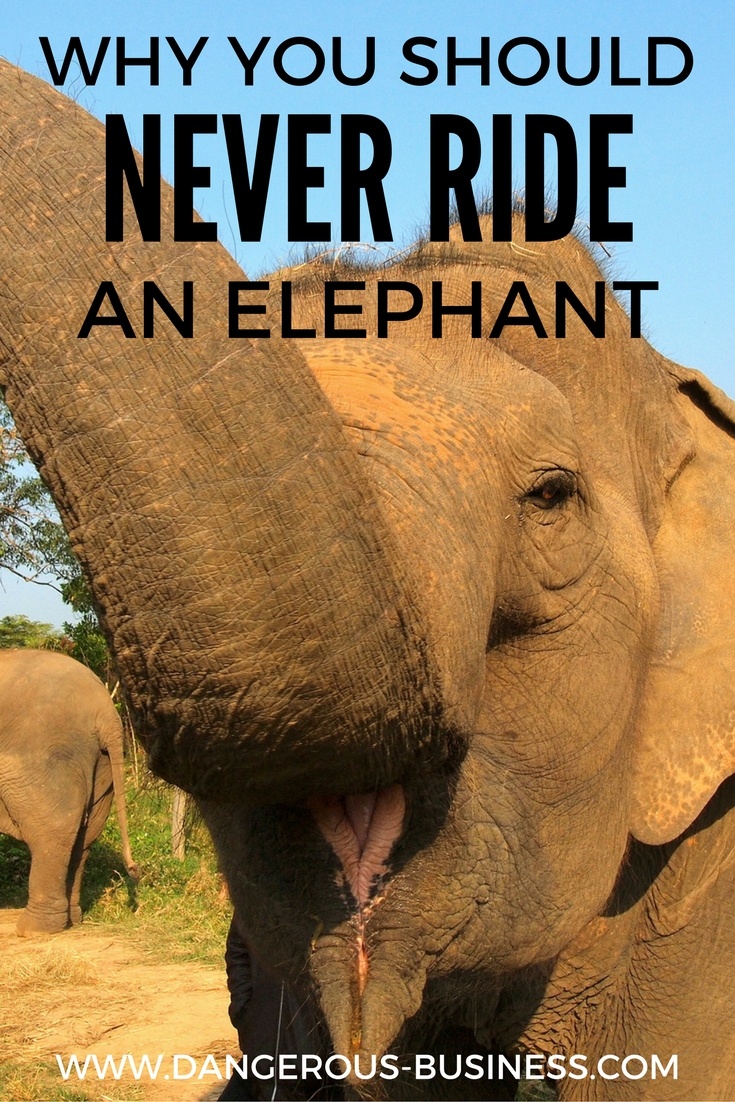
Comments
Post a Comment